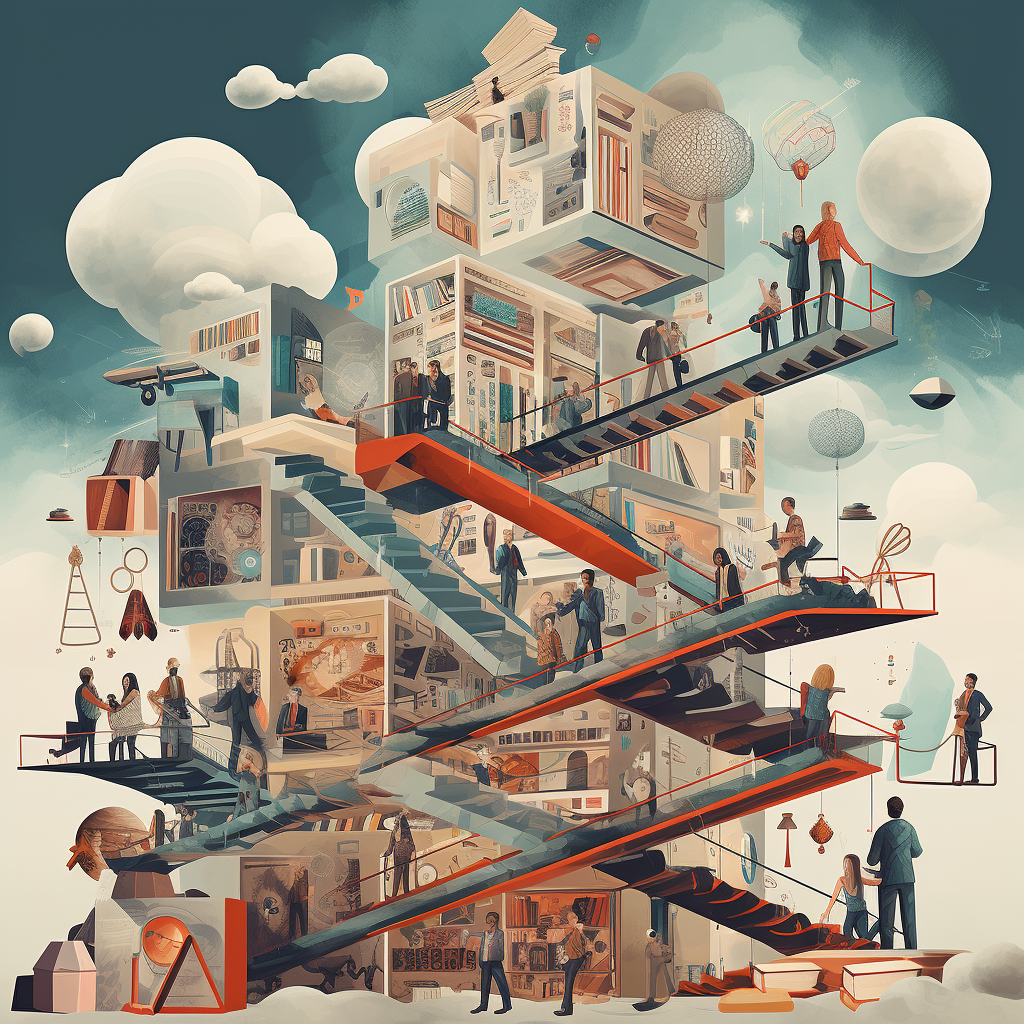In the age of fast-paced technological advancements and shifting paradigms, the value of learning and building through iterative experiences cannot be overstated. This is where the importance of curiosity plays a critical role. Curiosity fuels the desire to explore, to dig deeper, and to question the status quo, acting as the catalyst for the iterative cycle of learning.
Some people think that expertise comes solely from innate gifts of talent or intensive research and study. While these are important, it’s often an insatiable curiosity that leads to the breakthrough moments in both understanding and innovation.
Some people aim for perfection, seeing perfection as a prerequisite for launching a project. This mindset, however, can stifle creativity and innovation. Aiming for perfection aligns with the belief that knowledge is acquired in a linear fashion. But if one remains curious and open to new experiences, it becomes evident that learning is seldom linear. Curiosity encourages us to take risks, make mistakes, and learn from them, allowing us to refine our approach continuously.
In fact, learning and building valuable products and services are inherently iterative processes — ones that thrive on cycles of action, evaluation, adjustment, and renewed action. Curiosity is the underpinning quality that keeps this cycle moving. It sparks the initial questions that lead to action, motivates the evaluation phase where we ask what can be improved, fuels the adjustment period where we tinker and experiment, and reignites renewed action as we seek to test our new hypotheses.
In today’s world of ever-changing technologies and frameworks, curiosity isn’t just a trait; it’s a necessity for continuous growth and improvement. Embracing it will not only make the iterative journey of learning and building more enlightening but also more successful.
The Iterative Cycle: An Overview
At its core, the iterative cycle involves a series of steps where you:
- Act: Whether it’s trying a new coding language, writing the first draft of an article, or launching a prototype of a product.
- Evaluate Results: Measuring how well the action met its objectives, usually through analytics, feedback, or self-assessment.
- Adjust Strategy: Based on what you’ve learned from the evaluation, tweak your approach.
- Act Again: Implement new action under the adjusted strategy.
This is not a quick trip to success; it is a cyclic process of personal and professional development.
The Valuable Lessons Embedded in Iterative
- Failure is an Asset, Not a Liability: In traditional learning environments, failure is often stigmatized. However, in an iterative model, each failure is a valuable piece of data, offering a lesson that brings you one step closer to your ultimate objective. The trick is to fail fast and fail forward — that is, to identify and analyze your failures quickly and use them to inform your next actions.
- Complexity Simplified: Big projects can often feel overwhelming. The iterative approach allows you to break down complex tasks into manageable parts. As you navigate through each cycle, your understanding deepens, and you are better equipped to tackle more complex challenges.
- Custom-Tailored Learning: Textbooks and online courses are one-size-fits-all solutions, but the iterative process is tailored to you. Your actions and adjustments are informed by your unique experiences and the feedback you’ve received, making the learning process highly personalized.
- Adaptability and Resilience: The iterative process naturally fosters a mindset of adaptability and resilience. You become accustomed to change and unpredictability, qualities that are incredibly important in our rapidly evolving world.
- Accumulated Expertise: Each iteration not only brings specific, project-related knowledge but also broadens skills like problem-solving, effective communication, and analytical thinking. Over time, this makes your mind nimbler and more versatile. Your confidence and competence grow.
Conclusion
The value derived from learning and building through iterative experiences is multi-faceted, ranging from specific skill acquisition to the development of your resilient and adaptable mind. In a world that prizes innovation and adaptability, embracing the iterative cycle brings continual growth and long-term success.

